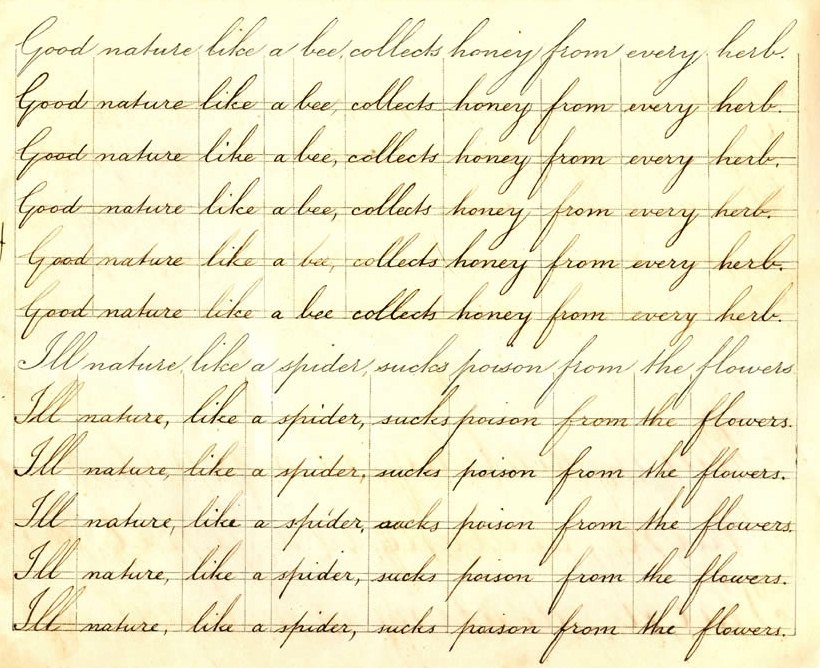
A headline in this morning’s FT – Secretive active ETFs[1] lose out to their fully transparent rivals – leapt out at me and put me in mind of Kipling’s October 1919 poem Gods of the Copybook Headings.
FT journalist Steve Johnson notes that “The new portfolio shielding models were expected to encourage actively managed funds to enter the ETF market, something many active managers had been reluctant to do because they feared daily holdings disclosures would reveal their “secret sauce” allowing other investors to front-run their funds and steal their intellectual property.”
The idea of some fund managers that they possess “secret sauce” suggests a dangerous hubris, redolent of aspiring Masters of Universe heading for a fall. Even if some may develop some special insight or clever algorithm to give them a temporary lead until their competitors catch up or until their perceived advantage turns out to be no more than a couple of rolls of the dice falling their way, the underperformance and lack of appeal of the non-transparent ETFs to investors suggests that any perception of the existence of “secret sauce” is outweighed by the discount that investors apply because they can’t see what is going on.
My instant reaction to the story was “What Dummies?”. While transparency of the composition and activity within an exchange traded fund may fall short of the “perfect information” ideal, investors in ETFs are a reasonably sophisticated bunch and will want the assurance that goes with transparency and be naturally suspicious of anything short of transparency.
Which brings me to Kipling’s poem. It was written in the aftermath of the First World War, with Kipling expressing pessimism about the nostrums that he perceived taking hold at the time. The current edit of Wikipedia describes what is going better than I can: In the poem, Kipling’s narrator counterposes the “Gods” of the title, who embody eternal truths, against “the Gods of the Market-Place”, who represent an optimistic self-deception into which it supposes society has fallen in the early 20th century. For my purpose, the believers in “secret sauce” are the God’s of the Market-Place, and the God’s of the Copybook Headings are the students who stayed awake during Economics 101[2] and acknowledge the existence of the obfuscation discount.
As I pass through my incarnations in every age and race,
I make my proper prostrations to the Gods of the Market Place.
Peering through reverent fingers I watch them flourish and fall,
And the Gods of the Copybook Headings, I notice, outlast them all.
We were living in trees when they met us. They showed us each in turn
That Water would certainly wet us, as Fire would certainly burn:
But we found them lacking in Uplift, Vision and Breadth of Mind,
So we left them to teach the Gorillas while we followed the March of Mankind.
We moved as the Spirit listed. They never altered their pace,
Being neither cloud nor wind-borne like the Gods of the Market Place,
But they always caught up with our progress, and presently word would come
That a tribe had been wiped off its icefield, or the lights had gone out in Rome.
With the Hopes that our World is built on they were utterly out of touch,
They denied that the Moon was Stilton; they denied she was even Dutch;
They denied that Wishes were Horses; they denied that a Pig had Wings;
So we worshipped the Gods of the Market Who promised these beautiful things.
When the Cambrian measures were forming, They promised perpetual peace.
They swore, if we gave them our weapons, that the wars of the tribes would cease.
But when we disarmed They sold us and delivered us bound to our foe,
And the Gods of the Copybook Headings said: “Stick to the Devil you know.”
On the first Feminian Sandstones we were promised the Fuller Life
(Which started by loving our neighbour and ended by loving his wife)
Till our women had no more children and the men lost reason and faith,
And the Gods of the Copybook Headings said: “The Wages of Sin is Death.”
In the Carboniferous Epoch we were promised abundance for all,
By robbing selected Peter to pay for collective Paul;
But, though we had plenty of money, there was nothing our money could buy,
And the Gods of the Copybook Headings said: “If you don’t work you die.”
Then the Gods of the Market tumbled, and their smooth-tongued wizards withdrew
And the hearts of the meanest were humbled and began to believe it was true
That All is not Gold that Glitters, and Two and Two make Four
And the Gods of the Copybook Headings limped up to explain it once more.
As it will be in the future, it was at the birth of Man
There are only four things certain since Social Progress began.
That the Dog returns to his Vomit and the Sow returns to her Mire,
And the burnt Fool’s bandaged finger goes wabbling back to the Fire;
And that after this is accomplished, and the brave new world begins
When all men are paid for existing and no man must pay for his sins,
As surely as Water will wet us, as surely as Fire will burn,
The Gods of the Copybook Headings with terror and slaughter return!
[1] Exchange Traded Funds
[2] I could equally have used this poem to illustrate the disastrous budget of Lizz Truss and Kwasi Kwateng and, who assumed office (briefly) as prime minister and chancellor of the exchequer exactly a year ago.